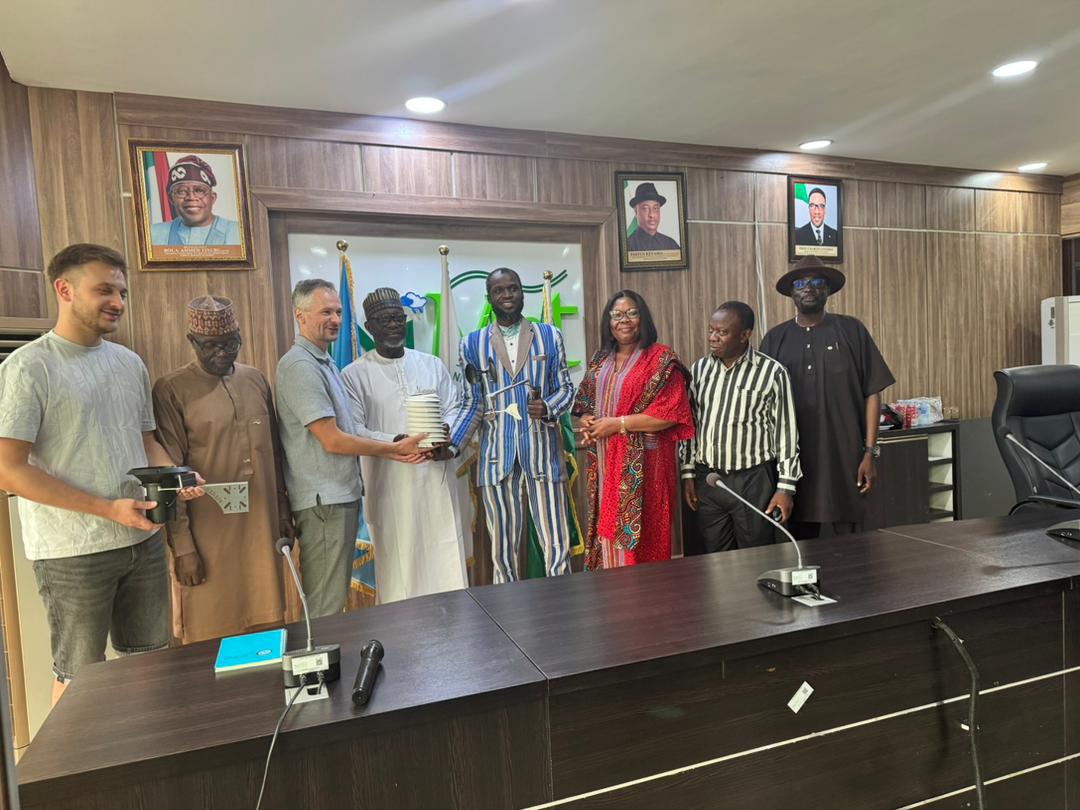NiMet Unveils IoT-Enabled Weather Stations to Boost Urban Climate Monitoring Across Nigeria

In a groundbreaking step towards advancing climate intelligence and resilience, the Nigerian Meteorological Agency (NiMet) has announced the deployment of innovative Internet of Things (IoT)-powered, LoRaWAN-enabled weather stations to enhance urban climate monitoring across the country.
The initiative, made possible through a collaboration between Barani Design Technologies and the West African Science Service Centre on Climate Change and Adapted Land Use (WASCAL), marks a major leap in Nigeria’s meteorological modernisation drive.
The new weather stations are designed to deliver precise, real-time data, ensuring improved forecasting and better climate-informed decision-making in urban environments.
Speaking during the official announcement, the Director-General and Chief Executive Officer of NiMet, represented by Engr. Hamid Abdulkareem, Director of Engineering and Technical Services, described the partnership as “strategic and innovative in the weather forecasting value chain.”
He said, “This initiative marks a significant step forward in our commitment to providing accurate and timely weather information. These advanced weather stations will be instrumental in helping us achieve our targets.”
The DG further noted that the donation complements the 25 Barani automatic weather stations already operational within NiMet’s network.
In addition, 59 compact automatic weather stations, including Barani models, are currently being reactivated to boost the Agency’s observational density and enhance its forecasting capabilities nationwide.
While commending Barani Design Technologies and WASCAL for their collaboration, the DG emphasised the need for continuous training and technical engagement.
“We urge Barani and WASCAL to promptly inform NiMet’s technical team of any capacity-building opportunities to ensure the sustainability of these automated systems and the seamless transmission of data to our central database,” he stated.
In his remarks, Mr. Jan Barani, Chief Executive Officer of Barani Design Technologies, praised NiMet’s forward-looking approach to meteorological advancement. He revealed that the newly designed weather stations are “smart, energy-efficient, and tailored for the complexities of modern urban environments.”
Barani explained, “The breakthrough comes as part of an initiative to make weather monitoring systems more compatible with smart city frameworks. This was necessary because traditional weather stations often face issues of inconsistent measurements and relocation challenges. Our new IoT-based design addresses these limitations while reducing power consumption.”
Echoing similar sentiments, Mr. Diallo Abdulaziz, Coordinator of the Data Management Department at WASCAL, noted that the partnership reflects a shared commitment to strengthening Nigeria’s meteorological infrastructure.
“Together with Barani and NiMet, we are enhancing power and connectivity solutions to ensure that weather stations across Nigeria meet global operational standards,” he said.
The IoT-enabled stations are built to conform to World Meteorological Organization (WMO) standards, guaranteeing the reliability, comparability, and global interoperability of the collected data.
This advancement is expected to significantly enhance Nigeria’s ability to monitor urban microclimates, improve early warning systems, and provide critical insights for sectors such as agriculture, aviation, water resources, and disaster management.
With this development, NiMet reaffirms its role as a regional leader in climate observation and a driving force in integrating technology-driven solutions for a sustainable and weather-resilient Nigeria.







